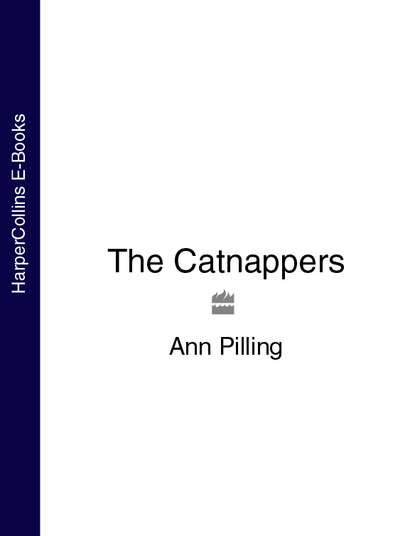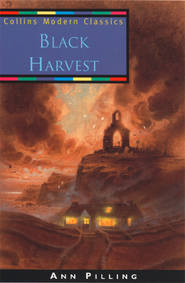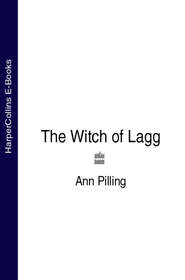По всем вопросам обращайтесь на: info@litportal.ru
(©) 2003-2024.
✖
The Catnappers
Настройки чтения
Размер шрифта
Высота строк
Поля
“But who owns the tail end?” said Mr Plackett. “That’s the bit I’d like. I mean, you could dust all the cobwebs away with a tail like that. You could just tuck him under your arm, and get to work.”
“Nobody owns it,” Kitty told him rather coldly. She was alarmed at the idea of using Nicholas’s tail to clear cobwebs. “And nobody owns him. You can’t own a cat. Nicholas belongs to himself alone.”
“Don’t get it,” grunted Mr Plackett, walking off down the path. But Kitty wasn’t listening. “The tail of Nicholas is the glory of God,” she murmured. It was one of her poetry things.
It was certainly true that Nicholas was for ever going out, in fact, he was very sociable, and sometimes he did very bold things. Once, seeing a tasty-looking bird, he leaped from a first-floor window right down into the square, to try and catch it. He could have been squashed flat, but he wasn’t. You probably know that a cat has nine lives. Well that day, Nicholas certainly lost one of them.
But there was one thing that always frightened him. If ever he heard a loud noise, he went pelting off to hide in some very secret place where he stayed for ages and ages – sometimes for hours.
It was because loud noises terrified Nicholas that everything went wrong, and it all started because of a silly quarrel. One day Miss McGee lost her temper with Kitty, and shouted and, rather to her surprise, dreamy Kitty shouted back. Then they threw things at each other and shouted more loudly, and it all made a very big noise indeed.
Kitty blamed Miss McGee and Miss McGee blamed Kitty and they both stormed off to sulk in their own rooms. But Nicholas didn’t creep up the stairs to comfort them both, one by one, in his usual purry way, and this was because he had vanished.
But before we get on to that, there is something more pleasant to tell you, something quite exciting that happened in Golden Square, only days before the old ladies quarrelled.
(#ulink_57435d4f-3045-5864-99ab-cc301caab9fd)
Chapter Two
The excitement happened just a few weeks before Christmas. Miss McGee was busy, mixing her pudding. She normally made it on Bonfire Night so that it could sit for a good long time on the cool pantry shelf, and develop all its lovely flavours of fruit and spice and best brandy, and be just perfect for Christmas Day. But she had been ill in bed with a nasty cold so the pudding making had been delayed.
Kitty offered to make it for her. “I could do it, McGee,” she said one morning, “if you will give me exact instructions.”
But Miss McGee, who was still feeling rather ill, called out from her bedroom, “Oh no, thank you. When it comes to cooking, you’re hopeless.”
Poor Kitty crept away, feeling very crushed, and went to sit in her front room, quietly, among her plants, with Nicholas on her knee. “Dear McGee must be feeling very bad indeed,” she confided, “or I don’t think she would have said such a thing to her oldest friend, do you?” And while Nicholas purred, in an understanding kind of way (the old ladies told him all their troubles, both separately and together), a little tear trickled slowly down her cheek.
Kitty, who was not very good at forgetting hurtful things, such as being told she was “hopeless”, was unhappy for the whole of that day, and into the next and the next. The unhappiness was like very bad toothache, just gnawing and gnawing, and it only went away when something unusual suddenly caught her eye, down in the square. It was a big, silvery furniture van with Friendly Ghost Removals painted on the side in bold blue letters.
“McGee,” she called. “McGee, come quickly. Somebody’s moving into Number 26.” In spite of her creaky little legs, Miss McGee came up the stairs quite fast, to look for herself. People never moved into Golden Square, they always moved out.
For example, just as they had got used to little Debbie Springer running in and out of their house, calling them her “special grannies” (even though she had a perfectly nice gran of her own, who lived by the sea at Blackpool), the flood happened, and the green mould, so that, almost overnight, Debbie and her mum had gone. Much as Kitty and Miss McGee liked Debbie, they were both nervous about going to the top of the Town Flats in that lift, so they didn’t see her any more. And all this was part of the reason that the two old ladies, who loved families and pets and, most of all, children, felt lonely.
They stood side by side at the window and peered down into the square where three men in brown overalls were carrying things into the house. Kitty removed her spectacles, to see better, and Miss McGee put hers on, for the same reason.
“There goes the ironing board,” Miss McGee cried. “And there goes the washing machine.”
“And there goes a bicycle … no, two bicycles,” said Kitty. “And they’re quite little ones.” She turned to her friend with shining eyes. “You don’t suppose a real family’s moving in, do you, McGee? Real people, after all those dentists and doctors? Might it be a real family at last, with real children?”
Miss McGee screwed her nose up, and her mouth and her eyes, till her face was one big scrunch. She didn’t want Kitty to be disappointed, in case it wasn’t a real family and she didn’t want to be disappointed herself. They both liked children. Kitty had once been a teacher, in the school that had closed down. She had been used to little boys and girls playing round her feet all day. Miss McGee had been a special nurse and had cared for sick children in hospital. “I wouldn’t like to say, Kitty,” she replied. “It could be some young people moving in. They might keep us awake all night, with their noisy parties.”
“Oh surely not,” said Kitty (though secretly, she rather liked parties), “not in Golden Square.”
The fetching and carrying went on for quite a long time, then there was a great slamming of doors. The driver whistled and soon the silvery van was moving away from the pavement. Just for an instant, the old ladies saw two grown-ups standing outside the door of Number 26, a man and a woman hand in hand. They were staring rather sadly at the disappearing removal van. Kitty and Miss McGee held their breath because the front door was still open; a handful of leftover autumn leaves was scurrying over the doormat.
“Where are the children?” whispered Kitty. “Perhaps they’re inside, unpacking their toys. Perhaps, if we wait, they’ll come out. They might even ride their bicycles round the square,” and she pressed her nose against the window pane.
“I don’t think so, dear,” muttered Miss McGee and she hid her own disappointment by going back to the pudding making, down in her kitchen. “There probably aren’t any children,” she added, under her breath.
(#ulink_a208da5d-bc5c-52d9-bae9-bd37c952887c)
Chapter Three
Kitty decided that there had got to be children. Hadn’t she seen two bicycles? So instead of doing her jobs, she spent a lot of time in her sitting room, lurking behind the curtains and peeping down into Golden Square. But nobody ever came out of Number 26.
Miss McGee got quite cross with her. It was now two whole days since they’d seen the removal van and all that time the pudding mixture had been soaking in a big, brown bowl, covered with a clean piece of cloth to keep out any flies or spiders. It was now time to boil it.
Kitty had funny feelings about this bowl because it was the very bowl that Miss McGee’s grandfather, who had been a farmer, used to soak his poor tired feet in at the end of the day. The pudding was always delicious but each year, when she took her first mouthful at Christmas lunch, Kitty always thought of a pair of big, sweaty feet swishing about in the bowl it had been mixed in. But she never dared tell Miss McGee.
“Come along!” her friend called to her from the kitchen. “I’ve got the pudding ready, and it’s time to start boiling. Stop mooning about by that window, Kitty, I need help.”
“I’m not mooning,” Kitty replied. “I’ve been waiting for those children to emerge from Number 26.”
“I’ve told you, there are no children. Now put your finger on this knot for me, please. I want a really nice, tight top to the pudding.”
Miss McGee had spooned her mixture out of the feet bowl into a white pudding basin. She had cut out a neat circle of greaseproof paper for the top then wrapped it all up in a big, special pudding cloth, the size of a tea towel. She had tied a string round this cloth, to keep it in place, and now, with the help of Kitty, it was secured with a very complicated knot.
The Christmas pudding, cocooned in its cloth, was quite heavy. Between them, Kitty and Miss McGee lowered it into a large saucepan which was ready waiting on the cooker. They filled the pan halfway up with water, then lit the gas. Five minutes later the water around the pudding was boiling fast and Miss McGee turned the heat down until it was bubbling gently.
“Now then,” she said, “we must keep the water topped up till it’s thoroughly cooked, and we must NOT let it boil dry.” She said this bit very loudly, as if poor Kitty was as deaf as a post. She wasn’t deaf, but it was true that she sometimes forgot things.
“When we leave this kitchen, we must both take our pingers with us,” continued Miss McGee. “Here’s yours, Kitty.” The “pingers” were things that made a noise when the food you were cooking was ready, or needed looking at. Kitty’s was a smart white one with digital numbers that shone in the dark. It was called Big Time and it bleeped rather than pinged. She had bought it one day in Mr Moat’s corner shop. He sold all kinds of useful items.
Sometimes they saw Debbie in the shop. Mr Moat was her mum’s brother and he was Debbie’s “Uncle Ted”. When it was the holidays, Debbie sometimes helped him, putting things in bags and weighing things, but it was so long since the old ladies had seen her, or her mum, they were beginning to wonder if they had left the town altogether and gone to live somewhere else.
Big Time was the latest thing in pingers. In her quiet wag, Kitty could be quite trendy. Miss McGee’s pinger was a wind-up red one and it was an old and trusted friend, like the feet bowl. It had timed many puddings.
The old ladies never stayed in the kitchen at boiling time because the process took ages and the room got much too hot and steamy. With their pingers in their pockets, they went off into their own parts of the house. Miss McGee’s was set to ping in half an hour when she would go and top up the water in the pan. Kitty’s was set to bleep half an hour later, when she would do the same. Turn and turn about, every half hour, they would make sure the precious pudding never boiled dry. Only Nicholas remained in the kitchen, curled up in his basket next to the cooker. He kept looking up at the boiling saucepan; he was better than any dog.
“He’s guarding our pudding,” said Miss McGee. “Good old Nicholas.”
“Good, dear cat,” whispered Kitty. “What would we do without you?”
Kitty had plenty of time to spare before Big Time bleeped so she went back to sit in her chair by the window and stared down into Golden Square. She was a patient sort of lady. She believed that if she stayed there long enough, something was bound to happen. It was just a question of waiting.
She had learned about waiting from Nicholas. He would sit for hours, patiently waiting for a mouse to creep out from under a table or chair, where it had gone to hide (19 Golden Square had quite a few mice). He knew that, if he waited long enough, the mouse would reappear in the end. He was a brilliant mouser. Miss McGee said that Nicholas’s paw control was the best she had ever come across, and she knew about cats because she’d been brought up on a farm. Kitty, who was a town person, had only ever known one cat, Nicholas, but she loved him with all her heart.
So did Miss McGee, but she never said it aloud, neither of them did, though each knew what the other was feeling. In this way, although very different from each other, the two old ladies were exactly the same.
Now perhaps Kitty had nodded off in her chair, or perhaps she had been looking away at the moment the person appeared on the scene. She couldn’t remember afterwards. But what was for certain was this: on the afternoon of the pudding boiling a real child appeared down in the garden, in the middle of Golden Square.
It was a boy and he was very small, about three years old perhaps. He had a red something on his top half, and a blue something on his bottom half, and a floppy yellow something on his head. From her upstairs window Kitty couldn’t see what any of these things were.
The minute she saw him, she stood up and made her way downstairs to the front door. From the hook where it had hung for years and years she took the large, heavy key which unlocked the gate into the gardens. She only had one pocket in her skirt and it was quite little so, to make room for the key, which she absolutely must NOT lose, she removed Big Time and put it on the hall table. After all, she would only be out of the house for a very few minutes.
(#ulink_5abf7943-cb40-5608-89d4-33b97a7f13cf)
Chapter Four











